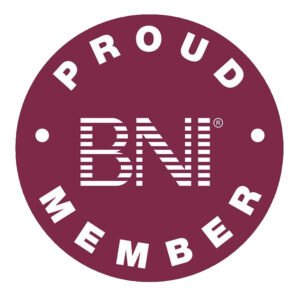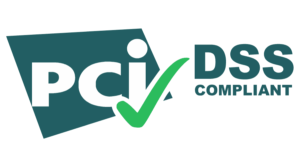Understanding the Intricacies of Payroll Services: A Comprehensive Guide
Understanding Payroll Services
At the heart of it, payroll services involve managing and processing the compensation of a company's employees. This doesn't just mean doling out paychecks at the end of the month. It's a broad term that covers a range of activities including calculation of employee salaries, deductions, bonus payments, maintaining records, and ensuring that the employees are paid accurately and on time.
From a business perspective, payroll services are a vital cog in the wheel. They ensure that employees are compensated fairly, promote compliance with legal and tax regulations, and foster a positive work environment. For businesses, particularly small ones, it's often more convenient to outsource payroll services to reduce administrative burden and focus on core business operations.
The Critical Role of Payroll Services
Understanding the role of payroll services is like peeling an onion. There's layer upon layer of functionality that's integral to the smooth operation of a business. It is not just about paying salaries on time, although that's important. Payroll services also ensure legal compliance, efficient record-keeping, and accurate tax reporting, making them a critical component of overall business management.
Payroll services can be seen as the lynchpin that holds a company together. It's a harmonious blend of human resources, finance, and legal compliance that works behind the scenes to keep businesses afloat and employees contented. A slip-up can lead to issues such as incorrect salary computation, late payments, and even legal problems. Thus, it's essential to understand the comprehensive role of payroll services in a business setup.
Key Components of Payroll Services
The nuts and bolts of payroll services encompass various elements. The key components include:
- Payroll calculations: The process of calculating the gross pay, deductions, and net pay for all employees.
- Payroll taxes: Withholding the correct amount of taxes from each paycheck and remitting them to the appropriate government entity.
- Employee benefits: Tracking and managing benefits like health insurance, retirement contributions, vacation and sick time.
- Compliance: Ensuring all payroll processes comply with local, state, and federal laws and regulations.
- Reporting: Generating accurate payroll reports for management and for tax purposes.
These components need to work together like a well-oiled machine for the payroll process to function effectively. It's like a jigsaw puzzle – every piece must fit perfectly for the final picture to emerge.
Manual vs. Automated Payroll Services: A Comparison
When it comes to payroll services, one can either choose to do it manually or employ automated software. Both have their pros and cons, and the choice between the two often depends on the size and complexity of the business.
Manual payroll is like a homecooked meal - it requires more effort but gives you more control over the process. However, it can be time-consuming, and there's a higher risk of errors due to human oversight. Automated payroll services, on the other hand, are like a fast-food joint - quick, efficient, and standardized. It reduces the chances of errors, saves time, and can be easily scaled as the business grows. However, it might lack the flexibility of manual processing and may not suit all businesses, particularly those with unique payroll requirements.
Choosing the Right Payroll Service for your Business
Selecting the right payroll service is akin to finding the right life partner. You need compatibility, trust, and a long-term commitment. While it might seem overwhelming initially, knowing what to look for can help streamline the process.
- Scalability: Can the service grow with your business? As your employee base expands, you'd want a service that can handle the increased workload seamlessly.
- Compliance features: Does it keep up with the latest tax laws and regulations? An up-to-date service can save you from potential legal trouble.
- User-friendly: Is it easy to use? A user-friendly interface can reduce the learning curve and save valuable time.
- Customer support: Does it provide reliable customer support? In case of any hiccups, you'd want someone who can help you out quickly.
- Cost-effectiveness: Last but not least, does it fit your budget? While cheaper isn't always better, you'd want a service that offers value for money.
Remember, every business is unique, and what works for one may not work for another. So, don't shy away from doing your homework and finding the perfect match!
Payroll Services for Small Businesses
If small businesses were a bustling bazaar, payroll services would be their guiding compass. With limited resources and manpower, small businesses often struggle to manage payroll effectively. This is where tailored payroll services can come to the rescue.
The needs of small businesses are distinct and require a different approach. Their employee base is smaller, and their legal and tax obligations are different from larger corporations. Payroll services for small businesses not only simplify the payroll process but also help in streamlining other aspects like employee time tracking, tax filing, and legal compliance. By outsourcing payroll, small businesses can focus more on their core operations, thus enhancing efficiency and productivity.
Payroll Services for Large Corporations
Managing payroll in large corporations is akin to conducting an orchestra. It requires precision, coordination, and a keen eye for detail. Large corporations have a vast employee base, varied job roles, and different compensation structures, making payroll management a complex task.
Payroll services for large corporations need to be scalable, flexible, and robust. They must be capable of handling large volumes of data, calculating complex compensation structures, and complying with various legal regulations across different regions. In addition, they should provide comprehensive reports to aid in decision-making and strategy formulation.
Understanding Payroll Taxes and Deductions
Navigating through the maze of payroll taxes and deductions can feel like walking through a minefield. One wrong step, and it can lead to serious consequences. As an employer, it's crucial to understand the implications of payroll taxes and deductions on your business.
Payroll taxes are taxes that employers are required to withhold from their employees' salaries. These include federal income tax, Social Security, and Medicare taxes. In addition, some states and localities also levy their own taxes. Apart from these, employers might also need to deduct contributions towards benefits like health insurance, retirement plans, and other employee benefits.
Comprehending these aspects is vital for accurate payroll processing. It helps ensure legal compliance, accurate tax reporting, and also fosters transparency and trust among employees.
Record Keeping in Payroll Services
Record-keeping in payroll services is the unsung hero that ensures the show goes on smoothly. It involves maintaining accurate and up-to-date records of all payroll-related transactions. These records not only aid in internal financial management but also help during tax audits and legal investigations.
Record-keeping includes documentation of employee wages, deductions, bonuses, and taxes. It also involves maintaining records of payroll tax filings, year-end reports, and any communications related to payroll. A well-maintained record-keeping system can serve as a safety net in case of any discrepancies or disputes.
Payroll Services and Compliance: Walking the Tightrope
When it comes to payroll services, compliance is the tightrope that businesses need to walk. It involves following all local, state, and federal laws related to payroll processing. This includes abiding by minimum wage laws, overtime regulations, tax laws, and record-keeping requirements.
Non-compliance can lead to hefty penalties, legal trouble, and even damage to the company's reputation. Hence, ensuring compliance is a critical aspect of payroll services. By staying abreast of the latest laws and regulations, businesses can avoid the pitfalls of non-compliance and navigate the tightrope of payroll processing with ease.
The Role of Technology in Payroll Services
Technology has had a transformative impact on payroll services. It has made the process faster, more accurate, and more efficient. By automating repetitive tasks, technology has freed up time for more strategic functions like workforce planning and compensation strategy.
Payroll software not only calculates salaries and deductions but also automatically generates pay slips, updates records, and ensures tax compliance. It has also enabled real-time access to payroll data, aiding in decision-making and strategic planning.
The role of technology in payroll services is ever-evolving. With advancements in artificial intelligence and machine learning, the future of payroll processing is set to become even more streamlined and efficient.
Trends Shaping the Future of Payroll Services
The world of payroll services is constantly evolving. The trends shaping the future include:
- Increased automation: Automation is reducing the need for manual interventions, making payroll processing faster and more accurate.
- Cloud-based systems: Cloud technology is enabling real-time access to payroll data, thereby enhancing efficiency and decision-making.
- Artificial Intelligence (AI): AI and machine learning are being leveraged to predict trends, analyze data, and enhance accuracy in payroll processing.
- Personalized employee experiences: With the advent of digital payslips and mobile payroll apps, companies are striving to provide personalized and user-friendly experiences to their employees.
Staying ahead of these trends can help businesses optimize their payroll processes and stay competitive in the market.
FAQs about Payroll Services
1. Why should businesses outsource payroll services? Outsourcing payroll services can save time, reduce administrative burden, and ensure compliance with tax and legal regulations. It can also provide access to expert advice and up-to-date technology.
2. What should businesses look for in a payroll service provider? Businesses should look for scalability, compliance features, user-friendliness, reliable customer support, and cost-effectiveness in a payroll service provider.
3. How do payroll services manage taxes and deductions? Payroll services calculate and withhold the appropriate taxes and deductions from each employee's salary. They also remit these amounts to the respective government entities and manage the documentation and reporting related to it.
4. How important is record-keeping in payroll services? Record-keeping is crucial for maintaining transparency, ensuring compliance, and resolving any discrepancies or disputes. It involves maintaining records of all payroll transactions, tax filings, and communications.
5. How is technology impacting payroll services? Technology is making payroll processing faster, more accurate, and efficient. It is automating manual tasks, providing real-time access to data, and paving the way for personalized employee experiences.
6. What are the emerging trends in payroll services? Increased automation, cloud-based systems, artificial intelligence, and personalized employee experiences are some of the trends shaping the future of payroll services.
Conclusion
Payroll services are an essential part of any business. Understanding their intricacies can help businesses manage their payroll processes effectively, maintain legal compliance, and ensure a satisfied workforce. With the rapid advancements in technology, the future of payroll services is set to be more efficient and user-friendly. So whether you're a small business or a large corporation, it's time to embrace the revolution in payroll services!












